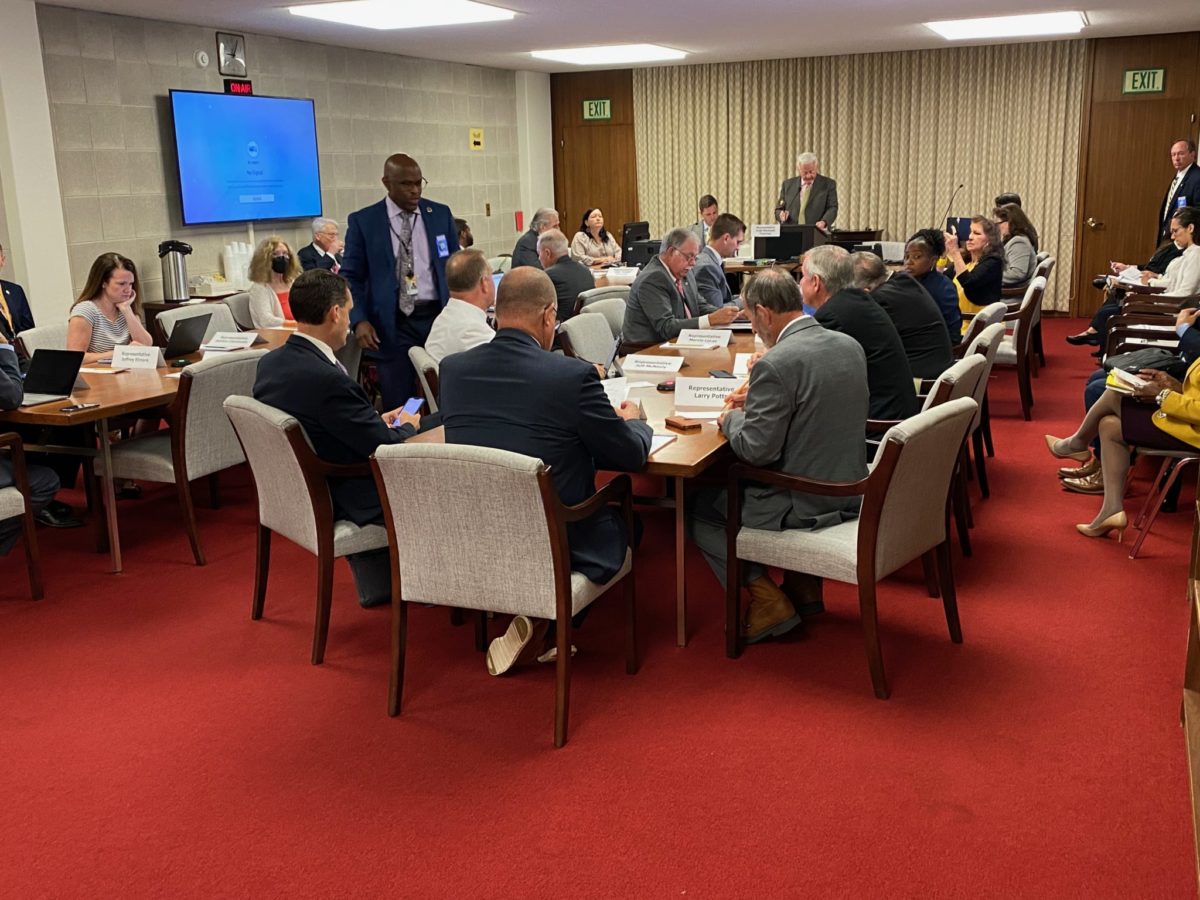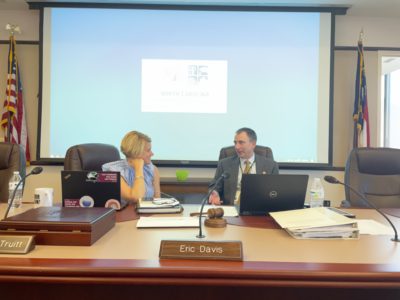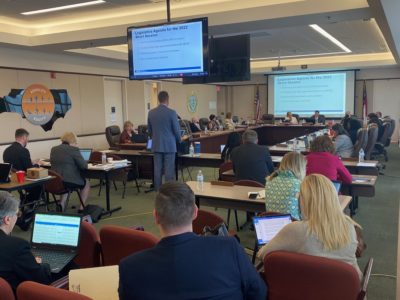
|
|
A bill that would ask voters to amend North Carolina’s constitution to make State Board of Education members elected passed a House committee today.
The bill could also place the state superintendent of public instruction at the head of the table, making him or her chair of the Board. In addition, the bill could force recess appointments by the governor to be confirmed by the General Assembly. Currently, the governor can appoint someone to take over a vacant position without further approval.
The bill, if approved, would put a constitutional amendment on the ballot in November to make the changes.
Rep. Hugh Blackwell, R-Burke, a chair of the committee, said the idea for the bill comes from previous conflicts, resulting in lawsuits, that sought to clarify the respective powers of the Board and the state superintendent of public instruction.
Read about those lawsuits here and here.
“This is designed to put that leadership role in the clear hands and make the superintendent the person who is running the Board,” he said.
He also said that local boards of education are elected and that it makes sense to have the same procedure at the state level. Additionally, he said that this new structure would help give interested constituents more voice in education.
“If anything has become clear recently the last few years, it’s that parents and voters feel like they need to have more of a say in what’s happening in our schools,” he said.
Currently, most members are appointed by the governor and confirmed by the legislature. In the case of a vacancy between terms, the governor is able to appoint a replacement without confirmation. Additionally, the elected lieutenant governor and state treasurer are both voting members. The state superintendent is on the Board, but does not have a vote.
“Do you like raising money when you have to run for campaigns?” Rep. Cecil Brockman, D-Guilford, asked Blackwell.
Brockman said making Board membership elected would force members to become partisan in order to raise money and be elected.
“I think it’s a bad idea just on that very principle right there,” he said.
The bill would require that members of the Board were elected from the same districts drawn for the House of Representatives of the United States. Currently, North Carolina has 13 districts — 8 controlled by Republicans, 5 by Democrats.
Rep. Kandie Smith, D-Pitt, said she was concerned that making Board members elected would lead to less minority representation, particularly given the way congressional lines are gerrymandered. But Blackwell said it was his understanding that courts in North Carolina have ruled that congressional lines are appropriate and that there is no racial bias. (North Carolina’s congressional district lines have been the subject of extensive legal action.)
A number of Republicans spoke in favor of the proposal. Rep. Jeffrey McNeely, R-Iredell, asked Blackwell if he knew the names of all the Board members. Blackwell said no and McNeely added that he would challenge anyone in the room to name them all. Making members elected would ensure that people are better able to know who they are, he said.
“I think this is a very novel idea, and I’m all for it. I think this puts transparency in government,” he said.
Rep. Phil Shepard, R-Onslow, pointed out that the bill would only put the proposal before voters.
“Ultimately the citizens of the state will vote in a referendum whether they like it or not,” he said.
Rep. Cynthia Ball, D-Wake, said the legislation would make it difficult for unaffiliated North Carolinians to run since elections favor partisan candidates.
“I don’t like this proposed constitutional amendment, but this is another way … we are shutting out and making it more difficult for the largest group of people in North Carolina to serve.”
Rep. Jake Johnson, R-Henderson, said the way North Carolina structures its Board — an elected superintendent with an appointed board — is relatively unique in the United States.
“There’s probably a reason other people aren’t doing it,” he said.
Ultimately, the bill passed the committee 14-7. It goes next to the House rules committee.





